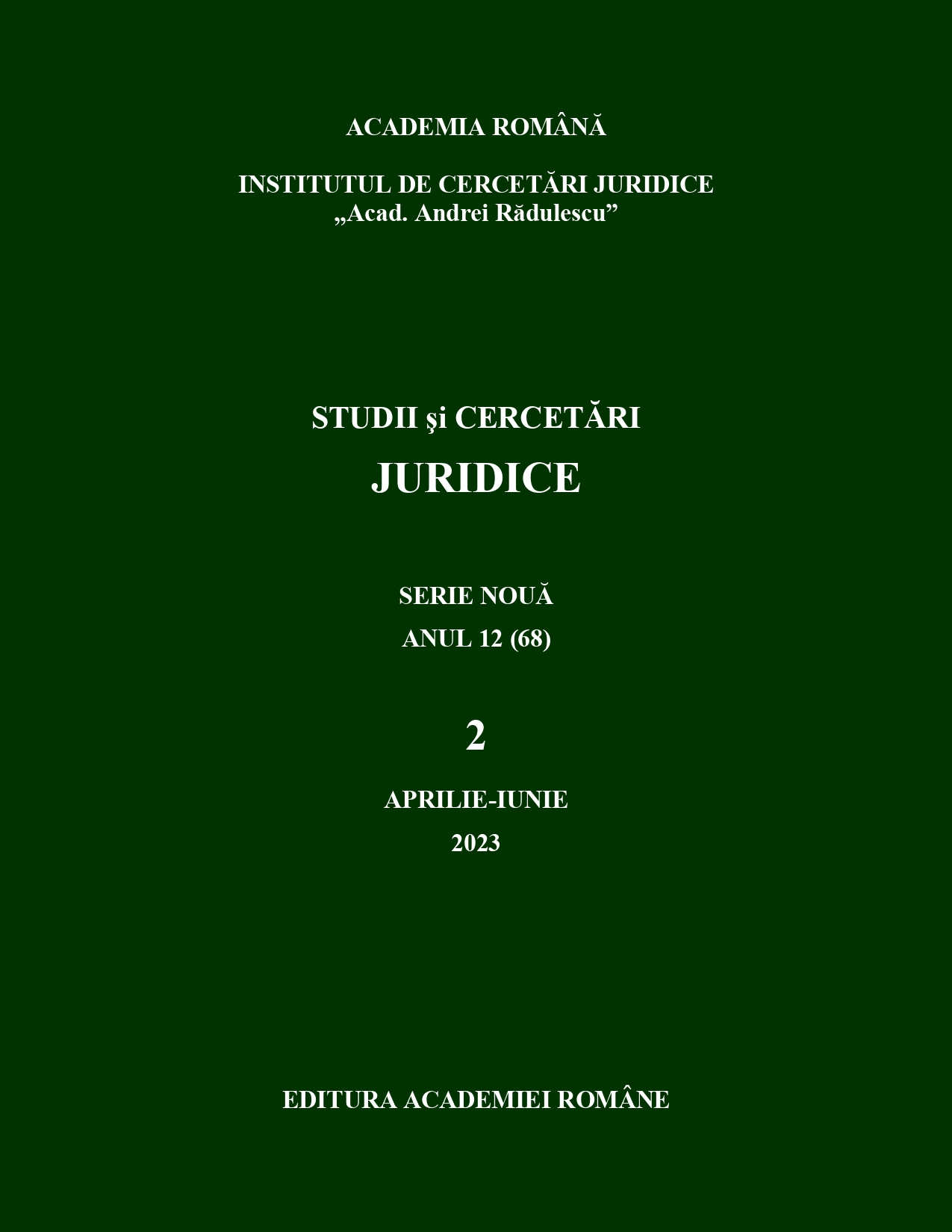De ce bunurile nu pot fi decât drepturile subiective și de ce toate drepturile subiective pot fi bunuri. Interpretarea eronată a moștenirii romane
Why Goods can only be Subjective Rights and why all Subjective Rights can be Goods. Misinterpretation of Roman Heritage
Author(s): Cristian DuţescuSubject(s): Civil Law, Philosophy of Law, Roman law
Published by: Editura Academiei Române
Keywords: things; goods; rights; subjective real rights;
Summary/Abstract: The legal concept of good appears to be inextricably linked to that of value. Given that the traditional Romano-German civil law inspired by the vision of the glossators and the materialism of the Napoleonic Civil Code considered that socio-economic inter-human relations are grafted on the triad of things-goods-rights, a closer look at the created relationships cannot help us leads to another conclusion than that the notion of good is confused with that of right. This latter concept, eminently intellectual, is the only one that can be attributed the quality of a patrimonial asset. The Roman notion of "res" carries a complexity that extracts it from the simple sphere of the notion of "good" as classical law tried to position it, it rather signifies a thing in a legal sense, a thing over which it bears a patrimonial right. It is incorrect from a legal point of view and outside of Roman legal thinking the thesis according to which the right of ownership is incorporated in the thing on which it bears. Despite an extremely well-argued theory that denies the existence of subjective law in the Roman legal culture, it is implicitly found in the structure of Roman law, at least thanks to the exorbitant powers granted to the owner. The conclusion that subjective real rights have, beyond any terminology, the legal nature of goods, is accepted by the most important legal systems of human civilization, whether we are talking about common law, the Muslim culture, or the Jewish one. The good cannot be an thing which is ” appropriate”, the good it is found inside the patrimony of a subject of law, it has an exclusively ideational existence, and is equivalent to the right that carries over some corporeal or incorporeal things. The conclusion is that no other goods can be conceived outside of rights, intellectual creations of legal thought. Even in the hypothesis in which we accept the "appropriation" of material or immaterial things and not the rights over them, although they have an undeniable legal significance, they cannot acquire the quality of patrimonial components, but only as objects of rights.
Journal: Studii și Cercetări Juridice – Serie Nouă
- Issue Year: 2023
- Issue No: 2
- Page Range: 256-292
- Page Count: 38
- Language: Romanian

